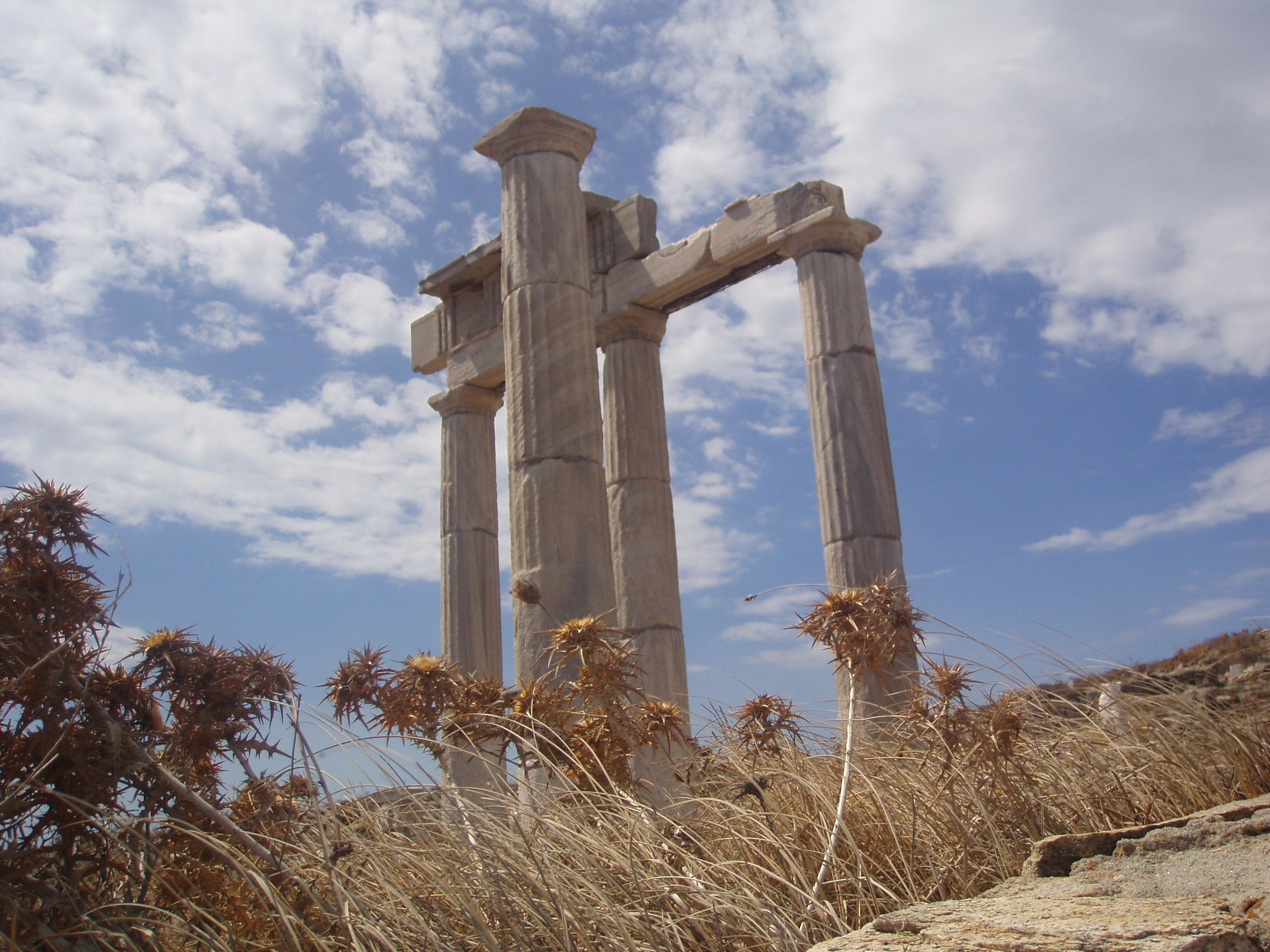Delos, often hailed as the 'Sacred Island', is an archaeological site of significant historical and cultural importance located in the central Aegean Sea, part of the Cyclades archipelago. Known for its extensive Greek ruins, it was revered as the birthplace of the twin deities Apollo and Artemis according to Greek mythology. This small island, despite its modest size, played a crucial role as a religious, political, and commercial center in ancient times, specially during the 1st millennium BCE.
Delos's cultural significance is marked by its impressive ruins, including temples, theaters, market squares, and residential complexes. The Sanctuary of Apollo, with its striking Terrace of the Lions, serves as a prominent landmark. The House of the Dolphins and the House of the Masks reveal intricate mosaics, showcasing advanced ancient artistic techniques. Additionally, the monumental Stoa of Antigonus and the ruins of the ancient theater offer a glimpse into the past's architectural grandeur.
Strategically positioned, Delos can be found in the Aegean Sea west of Mykonos, Greece. The island enjoys a typical Mediterranean climate, characterized by hot, dry summers and mild, wet winters. Its barren landscape is overshadowed by the rich history it bears, attracting numerous tourists, yet it is devoid of modern settlements, emphasizing its status as an open-air museum.
Remarkably, Delos is linked to several historical events and festivals, including the Delia, a festival held in honor of Apollo, celebrated with athletic competitions and musical contests. This tradition underscores how the island remains intrinsically tied to its historical roots and serves as a testament to its longstanding cultural heritage.
An interesting fact about Delos is that it was once a bustling trade hub and a melting pot of cultures due to its designation as a duty-free port during Roman times. Today, Delos is a UNESCO World Heritage site, preserving its ancient glory and offering invaluable insights into ancient civilizations. The island’s archaeological and mythological allure continues to captivate historians, archaeologists, and tourists alike, making it a cherished emblem of classical antiquity.
 Romain Delanoë , CC BY 2.0, via Wikimedia Commons
Romain Delanoë , CC BY 2.0, via Wikimedia CommonsGreeceEurope
Nearby Places
Log in to write a review.
Sustainable Travel Tips
Plan Mindfully
- Choose direct flights when possible
- Travel during off-peak seasons
- Pack light and bring reusables
- Prefer eco-friendly accommodations
At Your Destination
- Use public transport or walk
- Support local businesses
- Respect wildlife and habitats
- Choose activities with minimal impact
Daily Habits
- Reuse hotel towels
- Take shorter showers
- Turn off lights/AC when out
- Carry a reusable water bottle
